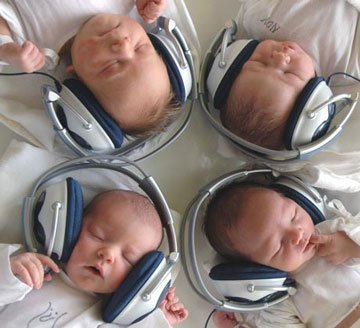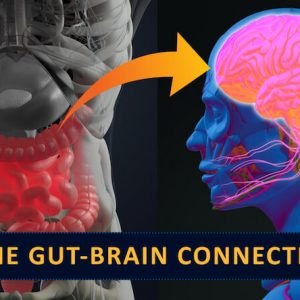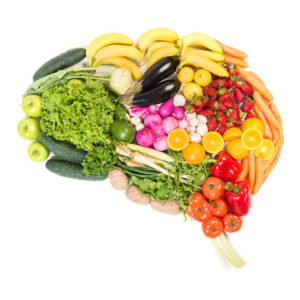Throughout the centuries, music was always an essential part of human lives. Used in religious ceremonies and traditional festivities, for motivational purposes and just as a source of vibrant emotions – music is literally everywhere. Medicine included. In the last decades, “music therapy” has become a usual and effective approach to a great variety of diseases. And with each passing year, more and more beneficial effects of music on your health are discovered. Let’s check on some of the most important of them.
Music Enhances Physical Performance
All that motivational playlists to accompany you on your workouts – they actually work. It was found that synchronous music (that matches the rhythm of the exercises you’re doing) increases athletic performance and significantly boosts your endurance. Partially, that’s thanks to the “distraction” effect. After all, when we’re engulfed in the flow of music, we tend to think less about the unpleasant sensations in our bodies that are related to the exercising process. In any case, it’s also just cool. Running along an energetic tune is always more pleasant than doing that in silence, isn’t it? 🙂
Music Can Lower Blood Pressure and Reduce Heart Rate
The Cardiovascular Society of Great Britain affirms that certain music may lower blood pressure and reduce heart rate. This was discovered in a study by Oxford University: music with a repetitive ten-second rhythm may be beneficial to your heart. That’s mostly classical pieces – like Shubert’s Ave Maria, Puccini’s Nessun Dorma and Verdi’s Va Pensiero. In a similar way, fast-paced music could lead to an increase in blood pressure and heart rate, as if our body “synchronizes” with the sounds that it’s listening too.
Nowadays, hypertension remains one of the most common cardiovascular conditions worldwide, and it can lead to a number of life-threatening outcomes like stroke and heart attack. Controlling your blood pressure is essential for a healthy life, thus shouldn’t be overlooked. Consult your certified healthcare practitioner and define an effective treatment. Combine it with proper music for even better results!
Music Helps to Treat Alzheimer ’s Disease
According to the Alzheimer’s Foundation of America (AFA), music therapy imposes great effects even in the late stages of the disease. Proper music was found to stabilize mood, ease positive interactions, enhance cognitive functions and improve motor movements. How is that possible? In Alzheimer’s, the structure of the brain that is most affected is the cortex, which is responsible for all our “conscious” actions and cognitive functions. But music works much deeper, it resonates with our unconscious part – and the brain structures related to it. By bringing them to action, music is able to awaken and support the connections between the older, subcortical parts of our brains with the “newer” ones – the cortical structures. In its turn, this may slow down the process of dementia development – and alleviate its impact to a certain extent.
Alzheimer’s disease is thought to be the cause of 60% to 70% cases of dementia, and some of its symptoms include mood swings, memory loss and behavioral issues. Thanks to music, it is possible to relieve these manifestations a bit, improving quality of life for both the patient and his or her loved ones.
Music Improves Academic Performance
Professor James S. Catterall, a graduate from UCLA, has discovered a link between engaging in arts or music and academic performance in students. This is explained, perhaps, by the fact that early exposition to music (and especially – to actually practicing it) increases the plasticity of the brain, making it more proficient in dealing with new knowledge and skills.
For instance, professor Catterall affirmed that 41.4% of the students that actively participated in arts and music scored in the top half of their standardized tests, compared to just 25% of those that didn’t care much for arts. Who would think that playing an instrument could help you score better in your math test?
Music Improves Mood, Fights Depression and Relieves Stress
Have you ever heard about “happiness hormones”? Dopamine (along with endorphins, serotonin and oxytocin) is one of them, and certain studies have shown that music can elevate its levels in your body. The synthesis and release of dopamine isn’t specific, but is almost always related to the feeling of reward after a craving of some sort. So, when you wait for that fantastic chorus and eventually hear it, your body detects that as a fulfilled craving and releases dopamine, making you feel that euphoria and happiness we all long for.
In an evolutionary sense, this is necessary in order to support actions and achievements that are essential for survival – like eating when you’re hungry, drinking when you’re thirsty, and so on. But everything counts, right? With the help of music (and dopamine), your body improves your mood, fights depression and effectively relieves everyday stress, leading to a better quality of life in general.
Music Helps in the Treatment of PTSD
Post-traumatic Stress Disorder (PTSD) is a mental condition that affects many combat veterans. There are numerous approaches to the treatment of this disorder, and music therapy was found to be one of them. According to a pilot study held by the U.S. Department of Veteran Affairs, learning to play guitar showed a clear and significant improvement in PTSD symptoms (21% relief), including depression (27% relief).
This is related, perhaps, to the connection between music and dopamine synthesis, a powerful happiness hormone that helps to combat stress and depression. But besides that, learning to play a musical instrument is clearly a potent source of self-fulfillment, which is always beneficial for one’s mental condition.
Music Improves Quality of Sleep
A couple of years ago an interesting meta-analysis has shown that music improves quality of sleep greatly. This research was conducted at the Department of Cardiovascular Surgery of Pingjin Hospital (China), and analyzed almost 600 participants of different researches from all around the world. The results indicated that music assists in treating acute and chronic sleep disorders, insomnia included. Great news for those of us who have trouble falling asleep after a stressful day!
And, actually, that’s important not only in terms of a good rest. During sleep, there’s a peak in growth hormone (somatotropin) levels – a bioactive substance that takes part in numerous processes in your body, including tissue growth and regeneration, fat metabolism and even cognitive functions. So it’s not a surprise that certain studies indicate that a healthy sleeping regime may reduce age-related cognitive decline.
Listen to music, sleep on your problems, think better and get healthier!
Music Strongly Increases Exercise Adherence
To start exercising may be hard sometimes, but to keep exercising regularly – that’s the real challenge. If you don’t listen to music, that is. Christopher Capuano, director of Fairleigh Dickinson University’s School of Psychology, states that people who listen to music during their exercise sessions are much more likely (98%) to keep doing that regularly than those folks who prefer exercising in silence (68%).
Actually, the music-listeners also burned twice as much fat – 16 pounds on average, compared to just 8 pounds in the “silent” group. So turn on the radio, put on your sneakers – and start running for a better body!
I hope that this brief review on music and our bodies was interesting to you. If it was – share it with your friends and family to spread the useful information! With all those benefits that music has for your health – it would be fantastic if more people were aware of it! Also, in case you’ve got any questions, collaboration ideas or just want to drop me a word – feel free to contact me anytime.











Leave a Reply